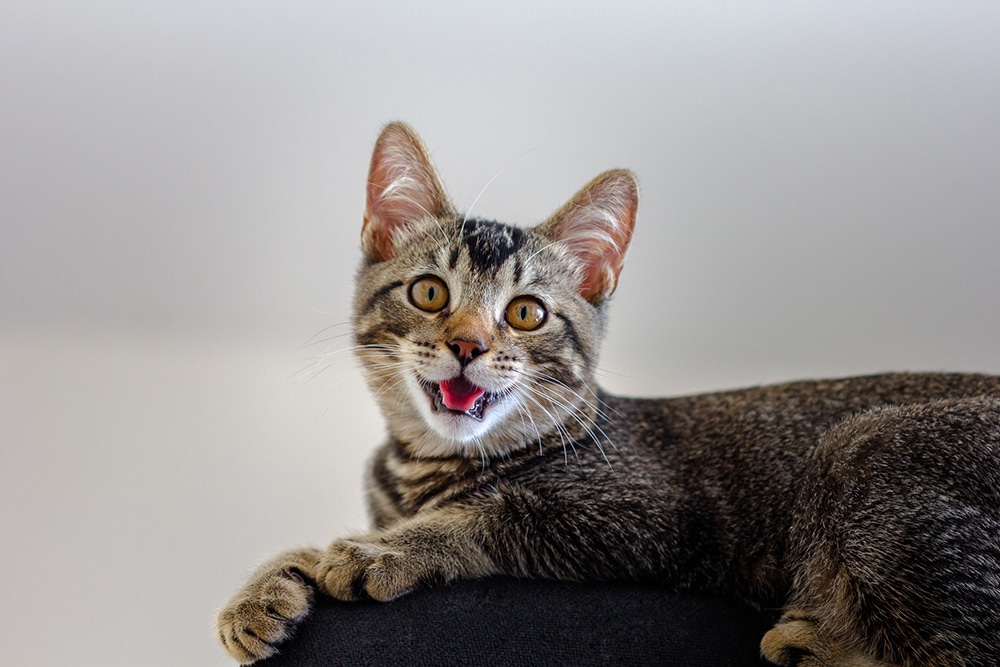Cats are fascinating creatures, showcasing a mix of independence and affection. They often hide their discomfort and illnesses, making it crucial for pet owners to notice any subtle changes in their behavior or physical health. One such change that should never be ignored is bad breath, medically known as halitosis. Understanding the potential causes and implications of bad breath in cats is key to ensuring their long-term health and happiness.
Understanding Feline Halitosis: More Than Just a Bad Breath
If your cat’s breath smells particularly unpleasant, it might not be because of the fish-flavored meal they just had. Feline halitosis is often a symptom of an underlying health issue that requires immediate attention.
Underlying Causes of Bad Breath in Cats
Primarily, bad breath in cats is caused by dental or gum diseases. A build-up of tartar or plaque can lead to conditions like gingivitis and periodontal disease. Dental disease is incredibly common in cats, and unfortunately, it’s often overlooked until it becomes serious.
Other systemic diseases such as kidney disease, diabetes, or liver disease can also cause bad breath. These conditions can lead to an accumulation of harmful substances in your cat’s body, which might be expelled through their breath, leading to the foul smell.
The Implications of Ignoring Bad Breath in Your Cat
If left untreated, the root causes of feline halitosis can lead to serious health complications. Dental disease not only causes discomfort and pain, but it can also lead to tooth loss and bacterial infection. This infection can spread to other organs through the bloodstream, potentially causing life-threatening conditions.
Likewise, systemic diseases symbolized by bad breath, such as kidney or liver disease, can escalate quickly if not addressed early.
Identifying and Managing Bad Breath: Visiting Arrowhead Animal Hospital
If you notice a persistent bad odor from your cat’s mouth, the first step is to schedule a vet check-up. At Arrowhead Animal Hospital, our team of experts is ready to help diagnose and treat the source of your cat’s bad breath.
After a comprehensive examination, we may recommend treatments ranging from professional dental cleaning, dietary changes, or addressing underlying systemic diseases. If your cat’s halitosis is linked to systemic illnesses, rest assured that our experienced vets will devise the best treatment plan.
Recognizing Feline Halitosis
Don’t wait until your cat’s breath becomes unbearable. Regularly check your cat’s mouth for signs of dental issues like swollen or bleeding gums, yellow-brown crust on the teeth, and difficulty eating or drooling.
Dental Disease: A Common Culprit
A regular dental cleaning regime at home and professional cleaning at Arrowhead Animal Hospital can prevent the progression of dental disease. It’s important to take dental health as seriously in pets as we do in humans.
Systemic Diseases and Cat’s Bad Breath
Systemic diseases need to be addressed immediately. Regular vet check-ups can help catch these diseases in the early stages, increasing the chance of successful treatment.
The Role of Diet in Your Cat’s Oral Health
A healthy diet can also prevent bad breath. Talk to our team about the best dietary choices for your feline friend to ensure good oral and overall health.
The Importance of Regular Vet Check-ups
Routine vet visits are vital for early detection and prevention of illnesses. At Arrowhead Animal Hospital, we offer comprehensive health check-ups tailored to your cat’s needs.
Remember, halitosis in cats is often a sign of something more serious. Don’t ignore it. We invite you to schedule an appointment at Arrowhead Animal Hospital in Westminster, CO, today and let us help keep your feline friend healthy and happy for years to come. We’re here for all your pet health needs and queries. Book an appointment now.





